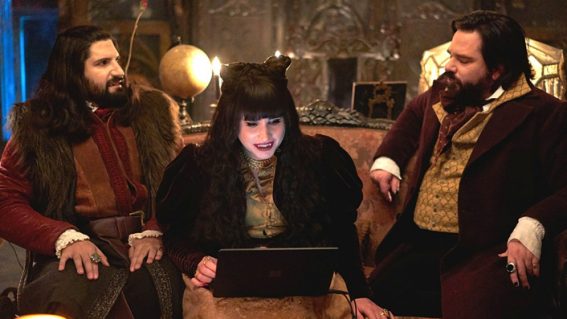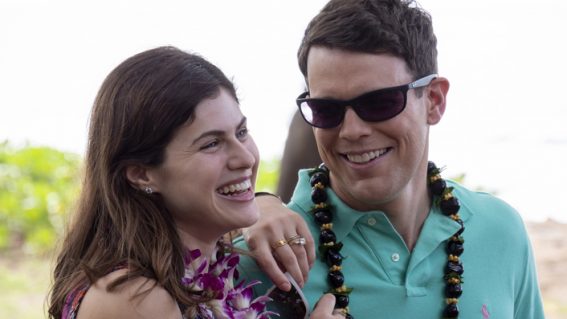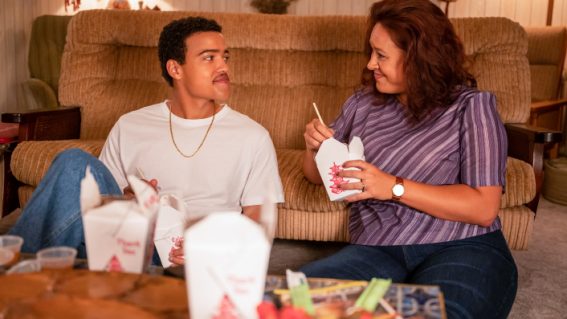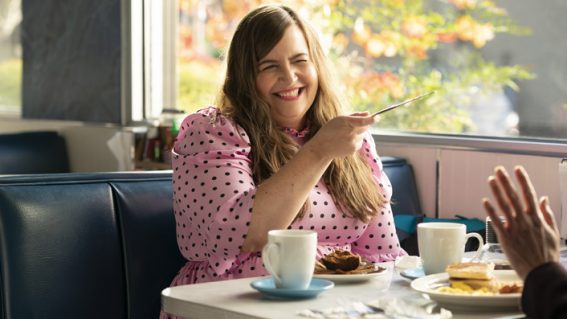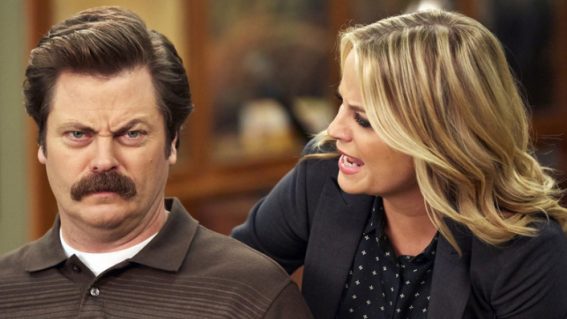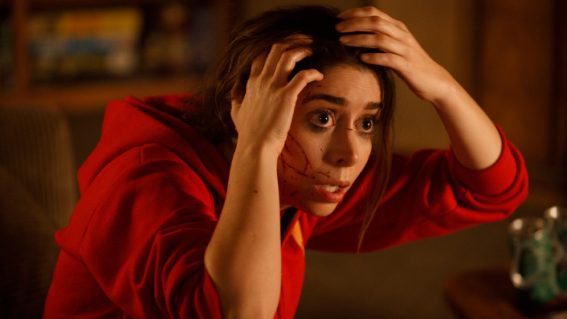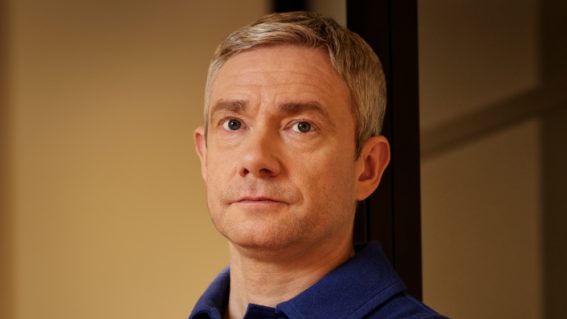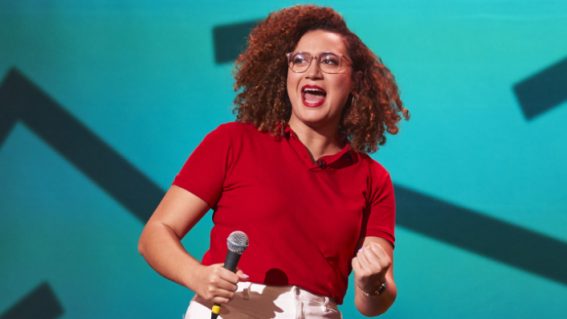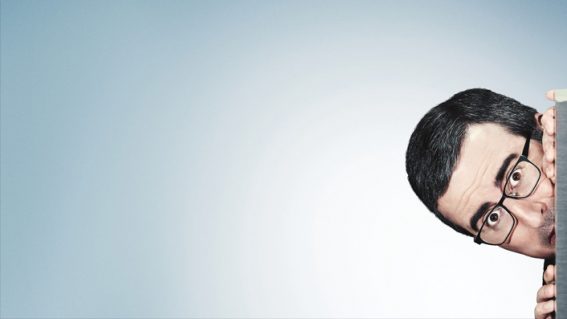Funny, insightful and full of heart, Shrill is an ideal binge-watch
…without being a mindless one.
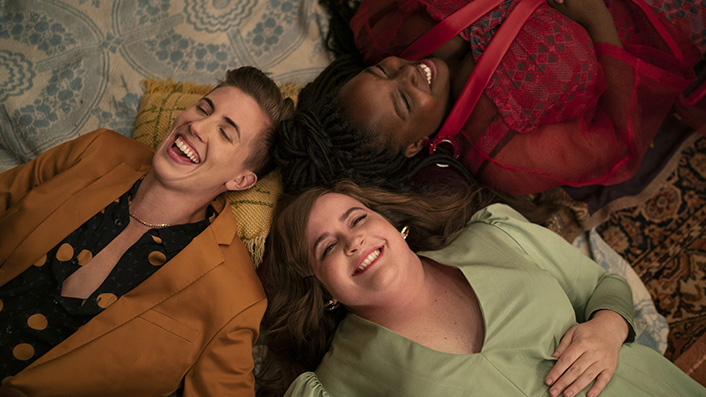
Hulu comedy-drama Shrill finally arrives in New Zealand, with the first two seasons now streaming on Neon. Katie Parker explains what makes this funny, poignant, unflinching show rise above shallow empowerment claptrap.
Do you find yourself apologising to people for nothing? Thanking them even after they were rude to you? Giving glassy-eyed smiles when what you really want to do is strangle someone?
See also:
* New release movies & series on Neon
* Everything coming to Neon in September
It’s a feeling that many people will find familiar and is even occasionally considered a kind of perverse virtue: the impulse to suppress all your own needs and wants in the service of not bothering anyone or causing any trouble at all.
But no matter how resigned you may be to grinning and bearing the innumerable indignities of everyday life, Hulu’s comedy-drama Shrill offers a compelling argument for being a bit… argumentative.
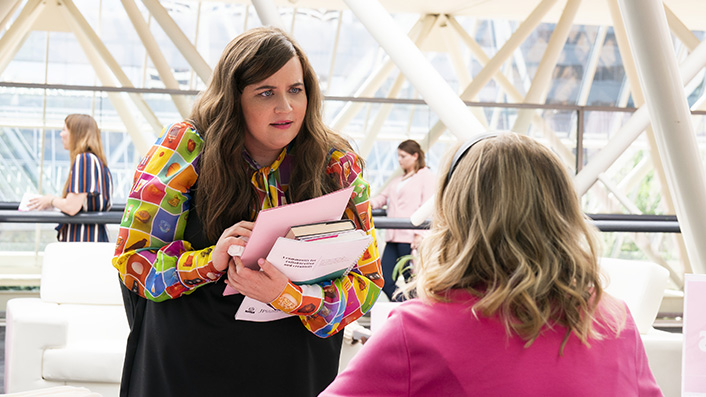
Adapted from writer Lindy West’s memoir Shrill: Notes from a Loud Woman and starring Saturday Night Live’s Aidy Bryant, the series follows Annie, a young, talented writer living in Portland trying to get her life together.
But, unlike the title of West’s book, Annie is not yet a loud woman. In fact, from her relationships to her work to her inability to cross the road without apologising to stopped cars, she is reticent to the point of paralysis, terrified to take up any more space than she has to – an issue exacerbated by her (and apparently everyone else’s) perception of her body.
She has a boyfriend (Luka Jones), but he’s a neckbeard with a podcast, won’t introduce her to his friends or family and makes her leave his house through the back door so she won’t be seen. She has loving parents (Julia Sweeney and Daniel Stern), but a mother who can’t help but compulsively make comments about her weight. She has a job at a hip Portland alt-weekly, but can’t get anything published by her dismissive and narcissistic boss (John Cameron Mitchell, widely thought to be a scathing stand-in for West’s own boss early in her career, Dan Savage).
When we meet Annie, she is not doing anything about any of these things – and seems to believe that, for someone who looks like her, it’s better just to take what you’re given, lest you end up with nothing at all. “Maybe if I was just sweet enough, and nice enough, and easygoing enough with any guy”, she explains to her roommate and best friend Fran (Lolly Adefope), “then that would be enough for someone.”
Which is a very grim outlook on life! Fortunately, a series of events causes Annie to reconsider this philosophy, and she gradually realises that being sweet enough, nice enough and easygoing enough isn’t getting her anywhere – and that, after a lifetime of being a doormat, it’s time to put her own needs first. Shrill follows Annie as she takes the steps to make this happen and explores the new world that opens up to her once she does.
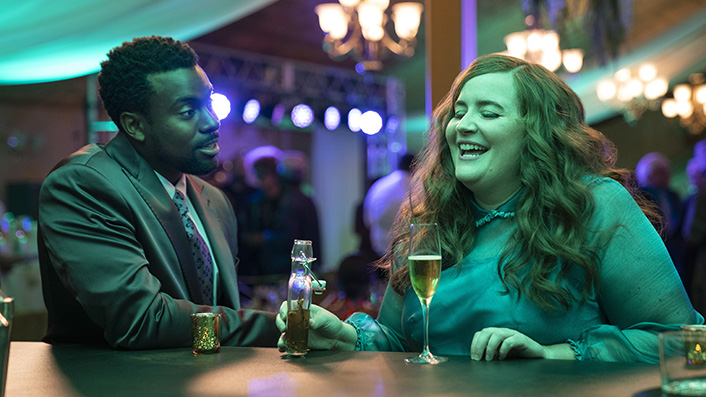
Of course, there are obstacles – not least the limitations created by the expectation all around her that women be polite, submissive, and skinny. Annie is blatantly demeaned and condescended to on a day-to-day basis, and Shrill is fearless in identifying the blatant fatphobia that permeates every part of her life. In the series pilot, this is revealed to have very real consequences when she takes the morning-after pill – only to find out the hard way that the medication is ineffective for anyone over 175 pounds, something her aloof pharmacist neglected to mention.
Perhaps, in the past, an incident like this would likely prompt a female character to go on a frenzied weight loss journey, or at least try to, à la Bridget Jones peddling desperately away on an exercise bike in shame. Shrill takes a very different route – and instead this moment acts as the catalyst for Annie’s inner transformation, one that has nothing to do with shedding pounds.
As simple as it sounds, in an era when even the likes of Bella Hadid are digitally shaving a few pounds off their Instagram selfies, Annie’s path to self-acceptance is unexpectedly radical – and Shrill’s critique is insightful and thoughtful, refusing to shy away from uncomfortable or taboo subject matter. Annie’s perspective is a rare one on mainstream television, and rarer still to be given this level of complexity. That morning-after pill plotline, for instance, leads to one of the most clear-eyed, compassionate, and unsensational depictions of abortion on mainstream television to date.
In fact, it is this moment that most clearly defines what makes Shrill more than just another ‘socially aware’ comedy-drama. While unflinching and unapologetic in the subject matter it broaches, never are Annie’s predicaments played for shock value or tragedy. Instead, there is a matter-of-factness about the obstacles she comes up against, whether they be a useless boyfriend, a toxic boss or her parent’s well-meaning but unsolicited advice.
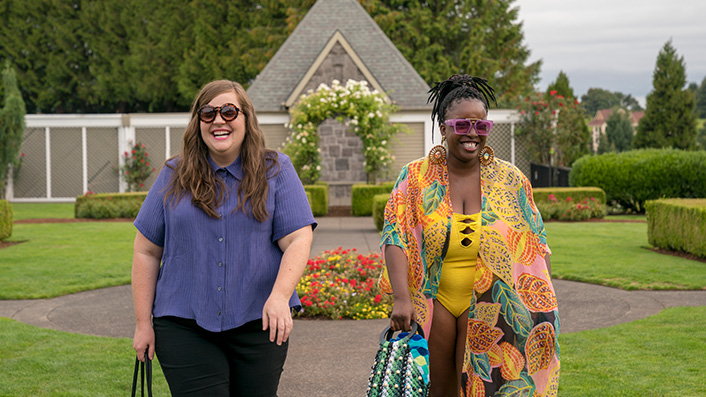
Perhaps part of what makes Shrill work so well, is that much of what happens to Annie is far from fictional – with much of the subject matter inspired by experiences that West herself has been through. A storyline in which Annie confronts a particularly nasty and prolific troll, for instance, is borrowed straight from real life – and the real story can be heard in full in West’s incredible This American Life segment.
But if this accuracy and insight gives Shrill its edge, it’s Bryant who provides its heart. She shines as Annie, and as painful as her early moments of desperation may be to watch, her slow but steady ascent to assertiveness is nothing short of triumphant. With a sly wit, sharp delivery and a lovely, layered performance, she is incredibly likeable and so relatable the show is instantly universal.
It would be so easy for Shrill to be yet more shallow empowerment claptrap, and even easier for it to play it safe and steer clear of difficult subject matter. Shrill instead casts a gentle and non-judgemental eye over the realities of life for women in a world that still expects them to take up as little room as possible, literally and figuratively.
With Annie still finding her feet at feeling herself in season one, Shrill is the kind of show that can only improve as its characters find their groove – and having already completed a second season (also on Neon) and been renewed for a third, it is a relief to know that Annie’s story will get the room to grow.
Funny, poignant and well-paced over six half-hour episodes, Shrill’s first season is an ideal binge-watch in trying times – without being a mindless one.







